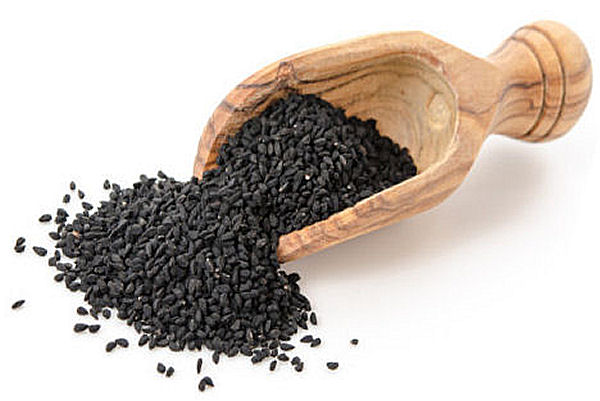Signs and Symptoms of Asthma
Asthma is a chronic inflammatory condition of the airways that disrupts normal airflow in and out of the lungs. Common symptoms include coughing, wheezing, shortness of breath, and a feeling of tightness in the chest. In children, asthma tends to affect boys more than girls, while in adults, it is more common in women than in men.
Causes of Asthma
While there is no single known cause of asthma, several factors are believed to contribute to its development and trigger symptoms. These include:
- Genetics: A family history of asthma increases the likelihood of developing the condition.
- Environmental factors: Exposure to allergens (such as pollen, dust mites, mold, and pet dander), air pollution, tobacco smoke, and cold air can trigger asthma symptoms.
- Occupational exposure: Jobs involving frequent contact with dust, chemicals, or fumes—such as in woodworking, farming, painting, or landscaping—may increase the risk of occupational asthma.
Other triggers include physical activity (especially long-distance running or cycling), respiratory infections, emotional stress, and changes in weather. Many people report worse symptoms at night or in the early morning.
Home Remedies and Natural Support for Asthma
While natural remedies may provide additional relief or support, they should never replace prescribed asthma medications. Always consult a healthcare professional before trying any natural treatment.
Turmeric as an Asthma Supportive Remedy
Turmeric contains curcumin, which has anti-inflammatory properties. Some studies suggest it may help reduce airway inflammation and relieve symptoms of asthma. One traditional remedy is to mix 1 teaspoon of turmeric powder into a glass of warm milk and drink this 1–2 times daily. However, turmeric should be used as a complementary aid, not a primary treatment.
Honey and Ginger Tea
Honey may help soothe the throat and reduce irritation, while ginger has mild anti-inflammatory effects. A tea made with 1 teaspoon of chopped ginger boiled in 1 cup of water and sweetened with honey may help with Asthma symptoms and throat irritation. Drink 1–2 times daily. This is supportive but not a substitute for asthma medications.
Black Seed Oil
Black seed oil (Nigella sativa) has shown bronchodilatory effects in some studies. Inhaling steam from boiling water mixed with a few drops of black seed oil may help temporarily relieve nasal congestion and asthma symptoms. Always check with your doctor before use.
Evening Primrose Oil
Evening primrose oil contains gamma-linolenic acid (GLA), which is known for its anti-inflammatory effects. Tea made from dried evening primrose flowers has shown to help relieve discomfort caused by Asthma. Simply take one capsule of evening primrose oil daily or follow the instructions on the package.
Licorice Root Tea
Licorice root has been traditionally used to soothe the respiratory tract. It may have mild anti-inflammatory and soothing effects. A tea can be made by steeping 1–2 inches of dried licorice root in boiling water for 10 minutes. However, long-term use of licorice tea is not recommended as prolonged use of licorice root can cause high blood pressure. Therefore, consult your doctor before taking it.
Important: None of the remedies above are substitutes for asthma medications such as bronchodilators or corticosteroids. Always consult your doctor before using any natural supplement or herb, especially if you are on medication or have other health conditions.


Thank you so much for sharing such an informative and useful home remedies for Asthma.
Asthma has been a nightmare for me and my daughter has been struggling with it too. I am positive that the natural remedies you provide in this article will be helpful.
Thanks so much for the Asthma home remedy using honey and ginger. Just a quick question - it says to drink this twice a day. Divide in half and drink twice a day or make twice as much and drink twice a day? Thanks!
If I dont have ginger, can I use ginger spice instead?
The simplest one to reduce snoring is to drink up to a cup of the water from boiling vegtables as a soup, the salts from the soup increase the evaporative temperature of the fluids in your mouth later at night and this delays the onslaught of snoring and reduces asthma.
I just wanted to confirm that this works100%. My 4 years old has asthma and often wakes up in the morning with coughing fits. This morning I used a potato peeler to remove the skin from a chunk of ginger (about the size of a golf ball), then I chopped it up in small pieces, brought about a 1/2 cup of water to a boil and then added it to the chunks of ginger, let it steep for about 15 mins and then strain the water into a cup for him to drink. I also added stevia to make it a little sweeter and easier for him to drink. He INSTANTLY stopped coughing. I have prescription medication for him but I always try the tea first. It almost always works. Hope this helps someone!
Thank you for the great information! My sister-in-law just found out that her son has asthma, so she has been trying to find ways to treat it at home. The honey and ginger tea remedy sounds fairly simple. I'll pass that along to her!
@Lenah, one drop of black seed oil no more than 10 days once a day and one tablespoon of honey and ginger tea remedy twice daily seems safe for a 16 months old baby. I gave these to my son for caugh and cold. I hope she feels better!
Is there any age restriction to using this herbs, can I give the mixture to a 16months old baby
You should also include information regarding mullein leaf - this herb has anti-inflammatory and anti-spasmodic as well as being a natural decongestant.